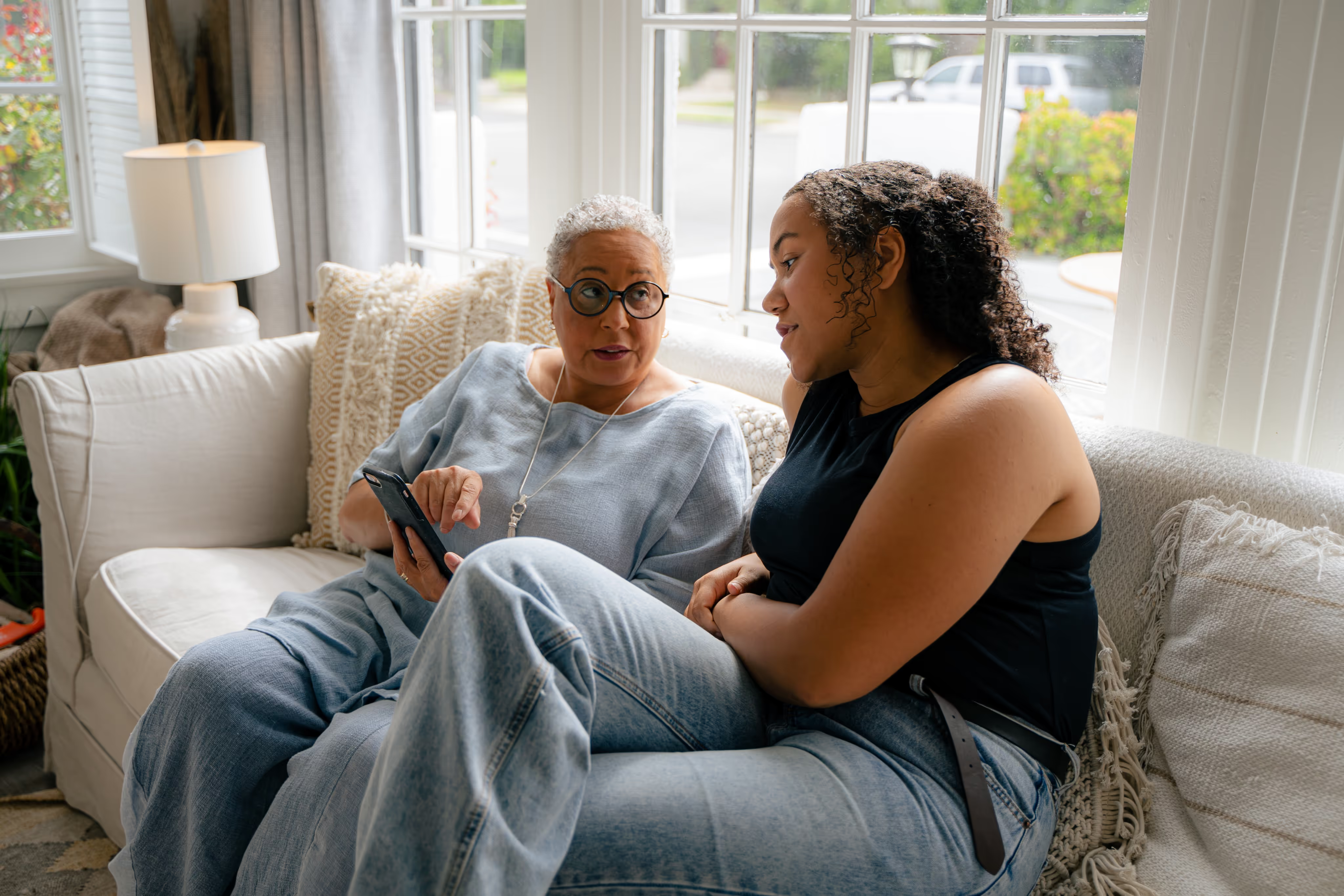Guaranteed to teach you things you never knew.
10 Tips for Asking Better Questions
10 tips for asking more effective questions in any setting: interviews, conversation, education, etc.
Asking good questions is a crucial skill in any area of life. Whether you’re trying to learn more about a subject, seek clarification on something, or simply want to engage in meaningful conversation, the ability to ask good questions is key.
But what makes a question "good?" A good question is one that is specific, open-ended, and respectful. It avoids assumptions and leading the respondent in a certain direction. It also requires active listening and follow-up clarifying questions. Asking good questions takes practice and thought, but the rewards are great. Not only will you get more detailed and informative answers, but you'll also improve your relationships and communication skills.
You can also ask meaningful questions to your loved ones and turn them into a hardcover book of stories with Remento book.

10 Tips on How to Ask Effective Questions
1. Start with open-ended questions: Open-ended questions are those that cannot be answered with a simple “yes” or “no” response. They encourage the person you’re asking to elaborate and provide more detailed answers. Examples of open-ended questions include “What do you think about this?” and “Can you tell me more about that?”
2. Avoid leading questions: Leading questions are those that suggest a specific answer or bias the respondent in a certain direction. Avoid leading questions as they can influence the answer you receive and make it difficult to get an unbiased response.
3. Avoid closed-ended questions: Closed-ended questions are those that can be answered with a simple “yes” or “no” response. These types of questions can be useful in certain situations, but they don’t encourage the person you’re asking to elaborate or provide more detailed answers.
4. Be specific: Ask specific, targeted questions rather than general ones. Specific questions are more likely to elicit detailed and informative responses.
5. Avoid assumptions: Try to enter the conversation without making assumptions about the person you’re asking or the subject matter. This will help you ask more open-minded and unbiased questions.
6. Be respectful: Always be respectful and considerate when asking questions. Avoid asking intrusive or inappropriate questions and be mindful of the person’s boundaries.
7. Listen actively: Asking good questions is only half the battle. It’s also important to listen actively to the answers you receive. This involves not just hearing the words being said, but also picking up on nonverbal cues and demonstrating that you are listening through your body language and facial expressions.
8. Follow up with clarifying questions: If you’re unsure of what the person is saying or if you want to delve deeper into a topic, don’t be afraid to ask clarifying questions. This will help you better understand their perspective and get a more detailed and comprehensive answer.
9. Be present: Try to be fully present in the conversation, rather than thinking about what you’re going to say next or what you need to do later. This will allow you to truly listen and engage with the person you’re asking.
10. Practice: Like any skill, the ability to ask good questions takes practice. Make an effort to ask thoughtful, well-crafted questions in all of your conversations, not just the important ones.
Asking better questions can help improve communication, deepen relationships, and increase understanding. By following these 10 tips, you can become a more effective question asker and enjoy the many benefits that come with it. Remember to make your questions specific, open-ended, and respectful; to listen actively and show genuine interest; and to avoid assumptions and judgment. With practice and patience, you can become a master question asker and enjoy the rewards that come with it.

Their stories, forever at your fingertips
Remento’s life story books turn a parent or grandparent’s memories of the past into a keepsake book for the future - no writing required.
Capture priceless family memories today
Join the thousands of families using Remento to preserve family history, all without writing a word.
.avif)
